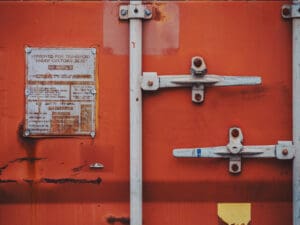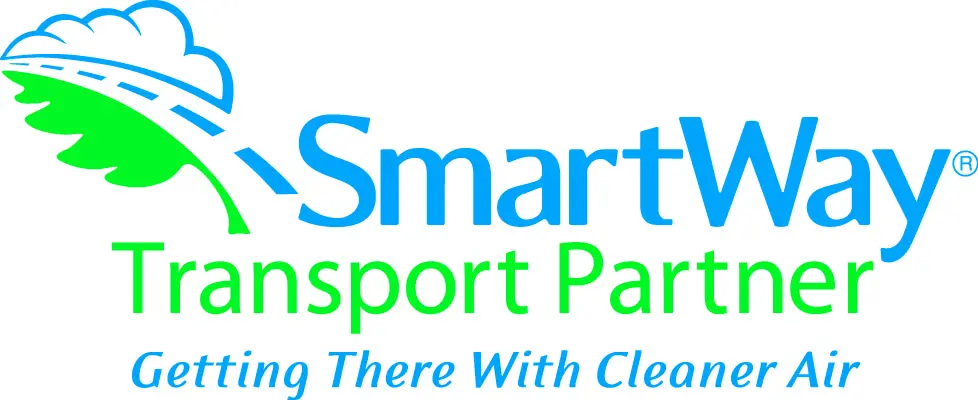services
Full tilt services
News
about
About full tilt logistics
Trade exhibitions offer businesses a fantastic chance to present their goods or services to a big audience. However, trade show shipping can be a complex process, and if not done correctly, it can lead to costly mistakes.
One of the most common mistakes businesses make when shipping trade show exhibits is not planning ahead. This mistake can lead to delays in shipping and the possibility of missing the show altogether. It is essential to start planning early and make a deal with reliable logistics companies to ensure that everything is organized and ready to go before the event.
Another mistake businesses make is failing to label their trade show exhibits correctly. When shipping, it's essential to label everything accurately, including boxes, crates, and pallets. To make everything easier to find, it's a good idea to label everything with the firm name and booth number.
Trade show exhibits can include fragile items such as electronics, glass displays, or artwork. Failing to secure these items correctly can lead to damage during shipping. To make sure that everything is properly protected, it's crucial to utilize the right packing supplies, such as bubble wrap, foam, & packing peanuts. Additionally, it's crucial to mark fragile items as such and ensure that they are placed on top of other items during shipping.
Depending on the destination, shipping regulations can change, therefore it's important to follow them to prevent any issues during delivery. This includes regulations related to hazardous materials, customs, and quarantine requirements. Working with reputable logistic companies that understand these regulations can help ensure that everything is shipped legally and on time.
A typical error that can result in disaster is not having a backup plan. Having a backup plan in place is important because delays, lost goods, and damage during transportation can occur. This can include having spare parts or backup displays available, or having a backup plan for shipping in case of emergencies.
After the exhibit has been successfully shipped and arrived at the trade show, it's essential to follow up with your Reno, NV trucking companies to ensure everything went smoothly. This entails verifying that every component of the exhibit has been delivered, looking for any faults or missing parts, and making sure that the display has been properly put up at the event. Failure to contact the shipping firm again could result in later, expensive and time-consuming problems.
Select a reliable and experienced carrier for shipping your trade show exhibit. Look for logistics companies that have experience in transporting trade show exhibits and that offers a tracking system for shipments. Choosing a carrier with a solid track record for timely delivery and customer service is also a big positive.
Shipping your exhibit can be a significant investment, so it is important to consider purchasing insurance to protect your investment in case of damage or loss during transit when considering Reno, NV trucking companies, & any other trucking companies located around the world as well.
If you are shipping your exhibit internationally, make sure that you plan ahead for customs clearance. Check the destination country's customs regulations and make sure all required paperwork and documentation are in order. It is also important to factor in additional time for customs clearance when scheduling the shipment.
Each trade show may have different rules and regulations regarding the size, weight, and type of exhibit materials that can be brought in. It's important to carefully review the guidelines provided by the show organizers for trade show shipping and communicate any questions or concerns with your shipping company.
Trade show shipping from exhibits can be a complex process, but avoiding these common mistakes can help ensure that everything arrives at the destination on time and in good condition. By planning ahead, labeling properly, securing fragile items, complying with shipping regulations, and having a backup plan, businesses can avoid costly mistakes and make the most of their trade show experience.
Reach out to Full Tilt Logistics today to have all of your trade show shipping needs taken care of by the professionals!
Logistics companies plan, implement, and control the movement and storage of goods, services, or information within a supply chain and between the points of origin and consumption. Various logistics companies handle some or all of these supply chain functions, depending on a client's logistical needs.
Logistics is a term synonymous with the military. In times of war supplying troops with the proper equipment and supplies was a logistics function. Logistics has evolved since the 1950s with the rise of consumerism and the subsequent growth of more complex supply chains.
Coordinating the movement of supplies and materials is now a globalized process. Today, the business sector uses logistics as a term to describe the efficient flow and storage of goods from point of origin to the point of consumption. The supply chain is a vital part of this process. A proper supply chain may include transportation, shipping, receiving, storage, and management of all or one of these functions. Logistics may also apply to information, transportation, inventory, warehousing, material handling, packaging, disposal, and security within the business sector.
Connect With Full Tilt Logistics
People often use the terms 3PL and freight broker interchangeably, however, this creates confusion regarding the nuances of either service. 3PLs and Freight Brokers are both intermediaries between the shipper and the carrier, yet their roles differ. A broker focuses primarily on executing a singular shipment and works to meet specific cost and service goals. The 3PL provider thinks about the bigger picture and more strategically. They plan earlier in the supply chain and anticipate the needs of a client through every step of the supply chain, transport, and delivery process.

A freight broker will often focus on one single shipment and act as a non-asset bearing intermediary between a shipper with goods to transport and a carrier who actually moves the freight. Essentially, a Freight broker works directly with owner-operators nationwide to coordinate individual shipments. Freight brokers currently handle significant amounts of truck transport in North America.
In the grand scheme of things, freight brokers often connect with hundreds or even thousands of small to medium-sized freight carriers to provide a large network of shipment options. This then affords shippers alternatives to larger freight carrier providers. Smaller carrier operations often rely more on brokers for business than larger carrier providers, because these larger carriers often have long standing relationships with 3PL companies.
In another post, we detail what a third party logistics company is, but in its broadest form, 3PL applies to any service contract that involves the storing or shipping of a commodity. A 3rd party logistics company may only offer a single service, like transportation, warehouses in Reno NV, or inventory management. However, it may also offer a system-wide bundling of services and management of a client's entire supply chain. Many 3rd party logistics companies integrate operations. Warehousing and transportation services are all tailored to a client's needs.

A third-party logistics company is typically an asset-bearing firm that establishes relationships with shippers on a broader scale. Third-party logistics companies typically make an investment in physical and human capital including brick-and-mortar locations and wheels on the ground.
Shippers looking for involvement with a collaborative transportation network will find that a 3PL fits their needs. However, there is a role for freight brokers in relation to shippers with already established 3PL relationships. If a shipper requires greater flexibility in their shipping needs, they may add a brokerage firm to supplement their shipping needs. Long-standing relationships developed by 3PL’s can pose an advantage when shipping capacity is tight. When it comes to your own company, it’s not about choosing between a 3PL or a freight broker. Shippers establish relationships with 3PL companies and freight brokerages in the interest of reducing shipping costs.
Many businesses deal in some way with finding suppliers. As a small business owner, there is no doubt that you engage in distribution logistics, inventory management, and warehousing at some level. You may already handle most of these functions internally. But for more complicated procedures, third-party logistics providers are frequently the solution. As an example, if you decide to export your products, you may hire a person or organization to help with distribution logistics.
Streamlining, consolidating, and outsourcing your logistics processes can result in huge long term financial savings and better overall client service. Connect with Full Tilt Logistics to learn more about what is a logistics company and what does a logistics company do. We're here to help you achieve your overall shipping needs as they arise across the United States. We are always happy to answer any and all shipping and logistics related questions. It's our goal to provide you with the best customer service possible!



